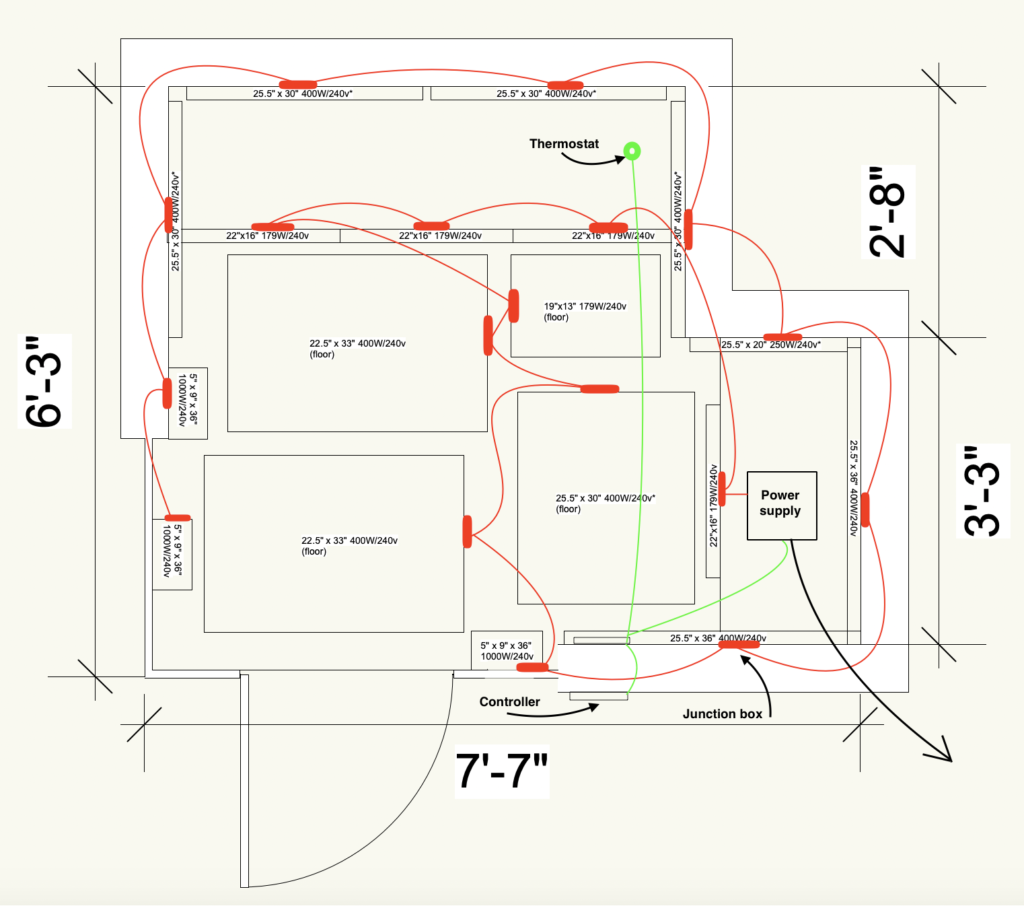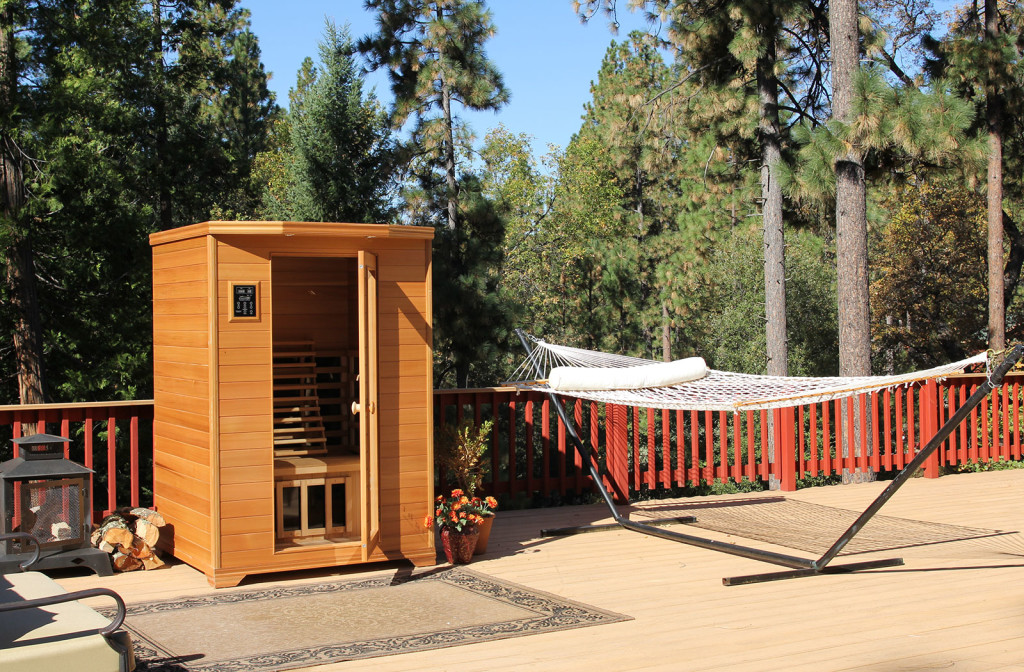How to Convert a Traditional Sauna to an Infrared Sauna
🧰 What the Infrared Conversion Process Involves
Converting your sauna to infrared requires modifying the electrical layout, adjusting heater placement, and thinking strategically about power supply location.
If you want to read our guide for how to construct your custom infrared sauna, please see it here.
Let’s walk through it step by step:
1. Accessing Behind the Wood
Most traditional saunas are tongue-and-groove builds with studs behind the panels. To mount infrared heaters properly, you’ll need access behind the tunnel groove boards and into the stud bays.
Stud access is essential:
Infrared heaters must be daisy-chained inside the walls — which means some wall panel removal is required.
Depending on the design, this could involve removing horizontal panels or cutting clean spill saw paths for heater and wiring runs. You’ll re-install or replace these later, keeping your original look intact.
2. Daisy-Chaining the Heaters
Each VantaWave heater is low-voltage and designed to be daisy-chained efficiently. That means:
Running wire through stud bays
Drilling access holes between vertical studs
Using fish tape to pull wiring between bays
Mounting heaters at core height (upper back, calves, and front)
Pro tip from Sonic Lab:
Plan out your heater layout on paper before cutting or wiring anything. You’ll want to space your heaters for balanced core-to-periphery coverage.
3. Choosing a Power Supply Location
Infrared systems require a dedicated power supply box (often 240V for multi-heater setups). This unit controls the heater logic, temperature sensors, and safety cutoff. Good locations for mounting:
On the outside of the sauna, behind a back wall
In an attic or utility closet near the sauna
Beneath the sauna if space allows
We recommend installing the power supply outside the heated space, both for heat protection and easy maintenance.
Infrared upgrades don’t mean a complete rebuild:
Your cedar or hemlock walls can stay — it’s the internal logic and heat delivery that change.
4. Temperature Sensor Placement
You’ll also need to install a digital temperature probe for accurate readouts and safe operation. This typically mounts:
Mid-height on the interior back wall
Away from direct heater line-of-sight
Near your main control panel (if using one)
VantaWave systems use digital sensors and auto shutoff for safety — essential when wiring into a previously analog sauna.
💡 Additional Considerations
Seating layout: Bench placement should allow direct line-of-sight exposure to the heater panels. Backrest heaters are common.
Wall thickness: Ensure your panels can accommodate the slight recess needed for VantaWave panels.
Ventilation: IR saunas require some airflow; consider a passive intake vent low on the wall and an exhaust vent higher up.
Infrared upgrades breathe new life into old wood:
You get modern health benefits without having to rebuild your entire sauna from scratch.
🔩 Common Tools and Materials You’ll Need
Fish tape or flexible fiberglass wire pullers
Drill + long spade bits (for access holes)
Spill saw or oscillating tool (for panel removal)
Wire staples or conduit
12/2 or 10/2 electrical wiring (based on heater specs)
Infrared heater mounting brackets (included with VantaWave)
🎯 Final Thoughts: Is It Worth It?
Yes — if done right. A properly converted infrared sauna can rival or exceed the performance of a brand-new unit. With expert planning, thoughtful installation, and premium VantaWave heaters, your old steam box becomes a modern wellness sanctuary.
Here at Sonic Lab, we’ve done it many times. We’ll even walk you through the process, recommend an electrician if needed, and spec out the heater layout to match your exact sauna dimensions.
Want to talk it through?
Send us a few photos of your current sauna, its dimensions, and tell us what you’re hoping to achieve. We’ll take it from there.




